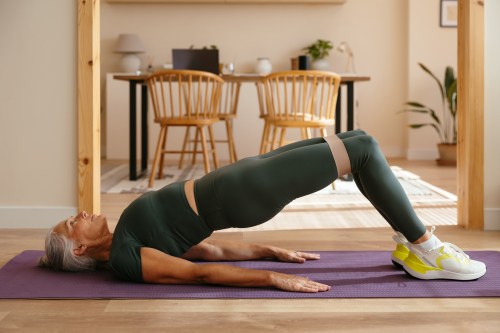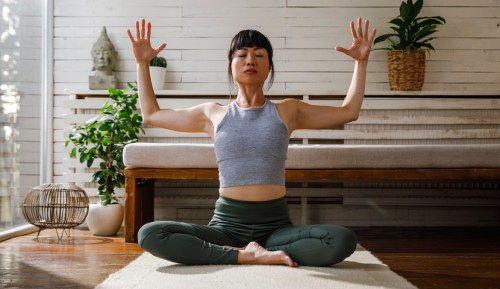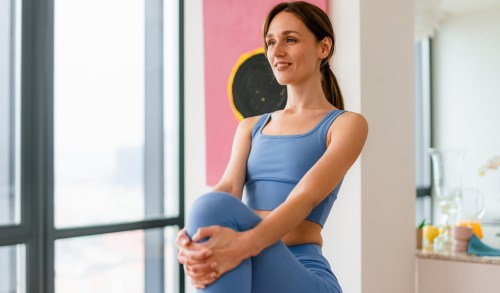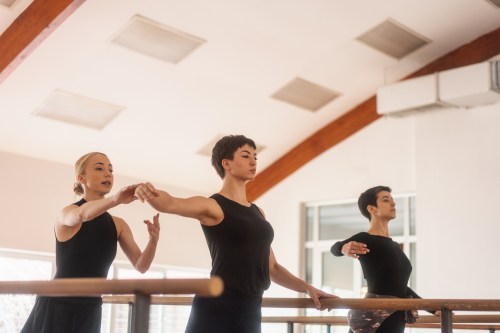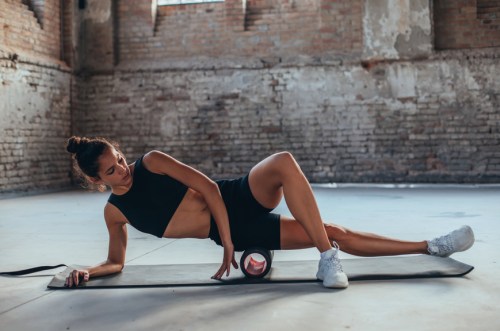Our editors independently select these products. Making a purchase through our links may earn Well+Good a commission
Three Longtime Yogis Share the Piece of Advice They Wish They’d Known As Beginners
We asked three veteran yoga teachers for the tips for beginners they wish they knew when they first rolled out their mat.

When many people think of yoga, they picture the Instagram version: a super-fit, hyper-flexible yogi on a beach somewhere, twisting their body into a circus-like contortion or balancing in a gravity-defying pose. These images can easily make it seem like the practice is…not exactly the most accessible workout for your average person.
But those who are deeply familiar with yoga know that, in fact, the exact opposite is true. Yoga isn’t just about the physical poses, it’s a spiritual practice focused on calming your mind and becoming more present—and finding an accessible version for your particular body and goals is deeply embedded into its philosophy. Some teachers will even tell you that there is no such thing as being “good at yoga.” And indeed, it doesn’t matter what you look like, how old or young you are, or whether you can bend your body into extreme poses—everyone has a place in the yoga studio.
We asked three veteran yogis for their takes on common misconceptions about the practice, how to pick the best class for you, and what they wish they’d known the first time they rolled out their mat.
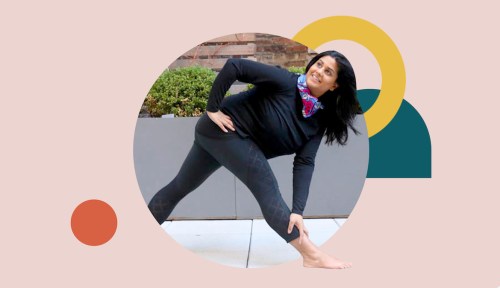
Jesal Parikh, yoga educator and co-host of Yoga is Dead podcast
Growing up in a Hindu household as an Indian American, Jesal Parikh was exposed to principles of yoga throughout their childhood, but it wasn’t until they were a young adult working in New York City that they decided to try their first official class. Now, they are an educator for aspiring yoga instructors and a co-host on the Yoga is Deadpodcast, where Parikh educates about cultural appropriation and challenges narratives about what yoga can be and who it is for.
If you could give any piece of advice to yoga newbies, what would it be?
Claim your own agency. Have command over your own body and don’t let anyone else bully or shame you into doing something that isn’t right for your body. Ask for what you want and what you need. Don’t be afraid to stop the flow or talk to a teacher beforehand or after class to get what you need.
In recent years, the trendy world of boutique yoga classes has garnered criticism for appropriating yoga’s traditional Indian roots. How can beginners educate themselves on yoga’s origins?
The biggest thing is to ask questions. It’s good to ask about teacher education: Have the teachers had workshops or special training on cultural appropriation? Have they had it on equity and inclusion? Even just emailing the studio and asking ‘Hey, what kind of resources are you providing the teachers as they progress? Because I want to make sure that I’m getting teachers who are the best educated that they can be on these topics.’
What is one thing you wish you had known when you started yoga?
That I could modify the practice to really meet my body.
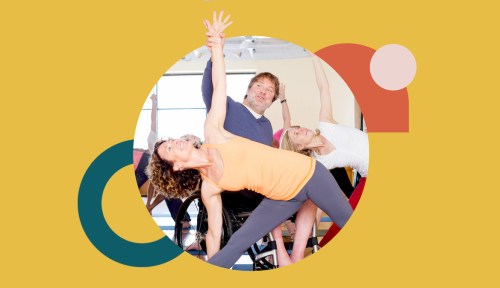
Matthew Sanford, yoga teacher, founder of non-profit Mind Body Solutions, and author of Waking: A Memoir of Trauma and Transcendence
Years after a car accident left him paralyzed from the chest down, Matthew Sanford says he found yoga at age 25 when he became motivated to learn how to maintain his paralyzed body instead of just living with it. Now, he has taught yoga at studios and conferences across the country, and founded Mind Body Solutions, a non-profit that focuses on adapting yoga for the disabled. In 2008, he released a book, Waking: A Memoir of Trauma and Transcendence.
What is the biggest misconception people have about yoga?
That it requires a certain type of body: a flexible body, a strong body, that you need to be able to take your leg behind your head. That’s just not true. For you to really have yogic realization doesn’t mean your body has to do extraordinary things; it means that your consciousness has to explore in simple things.
There are so many styles of yoga. How do you advise beginners to pick one that works for them?
Whatever your point of entry is fine. Don’t judge your point of entry, but have the strength to be changed by your yoga practice. Wherever you start, just know it’s going to evolve.
What is one thing you wish you had been told when you started yoga?
Don’t be so worried about your neighbor’s pose.
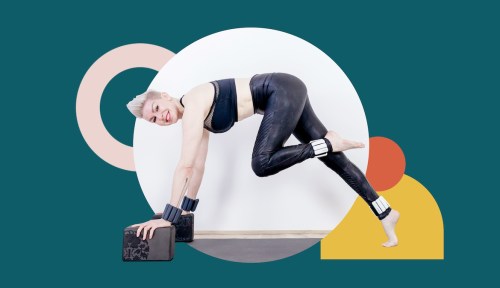
Sadie Nardini, yoga teacher, holistic fitness instructor, and anatomy expert
After breaking their neck and spine in three places at age 15, Sadie Nardini was told they’d likely need a wheelchair for the rest of their life. Determined to move their full body again, they were drawn to yoga because of its gentle nature. Now in their 50s, they’ve taught yoga across the world, and founded their own online yoga and fitness club.
You teach classes online as well as in-person. Which do you recommend for beginners?
I would love to say: “Oh, everyone spend money and find a studio near you and go in and get looked at.” But the problem is, that’s an optimal, privileged, potentially impossible thing to do for many people. If you can research online and find someone who has an anatomy background and is bringing that into the practice, it might be better in some ways to watch, follow along, and learn about the alignment. And then maybe go into a class and get looked at.
What is one thing you wish you had known when you started yoga?
If you’re responding negatively to your class, studio, or teacher, it’s like any relationship: Trust your gut. If your body doesn’t feel good in certain poses or you leave class feeling disempowered, then dump that teacher and go find one who is truly uplifting and aligned with you.
New to the mat? Try this gentle flow designed for beginners:
Oh hi! You look like someone who loves free workouts, discounts for cutting-edge wellness brands, and exclusive Well+Good content. Sign up for Well+, our online community of wellness insiders, and unlock your rewards instantly.
Sign Up for Our Daily Newsletter
Get all the latest in wellness, trends, food, fitness, beauty, and more delivered right to your inbox.
Got it, you've been added to our email list.
